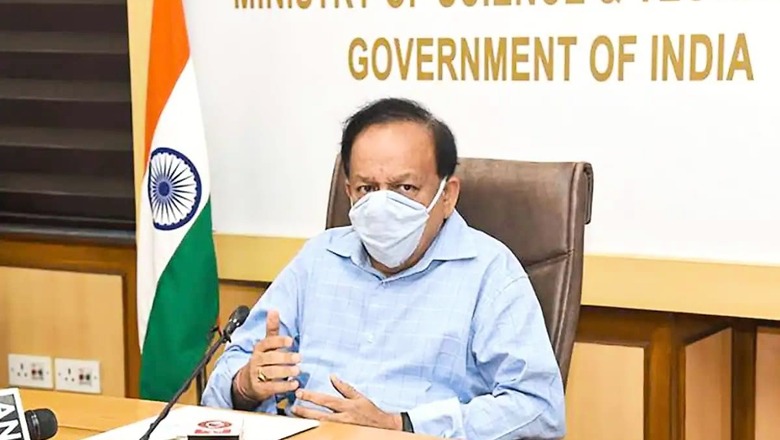
views
At the G7 conference in Britain, India spoke out against the implementation of COVID-19 vaccine passports, calling them “discriminatory” and “disadvantageous to developing nations.”
Only 3% of India’s population is fully vaccinated, according to Health Minister Dr Harsh Vardhan, and if this proposal is implemented, it will be “hugely discriminatory.”
This year, India has been invited as a guest to the G7 summit. Canada, France, Germany, Italy, Japan, the United Kingdom, and the United States make up the G7.
“Considering the fact of lower levels of vaccination in developing countries in contrast to the developed countries and still unaddressed issues related to equitable and affordable access, supply and distribution of safe and effective vaccines, India would propose that implementation of vaccine passports will be hugely discriminatory and disadvantageous to the developing countries,” said Vardhan.
“India would suggest that the same should be implemented duly taking into consideration emerging evidence on [the] efficacy of vaccines and under the overarching coordination of WHO duly attending to the anomaly of access and affordability as it exists today,” he said.
In a joint statement, the health ministers of the seven countries pledged to increase coordination in the face of future pandemics and other risks. Despite mounting fears that poor and developing nations will not receive enough or any vaccines, the members refused to commit to vaccine deliveries or increased manufacturing.
CNN News 18 previously reported that UK is believed to have acknowledged that vaccine passports would make sense only when vaccines were themselves available.
However, earlier this week, Johnson had indicated that he would like to push the G7 to look at the possibility of agreeing on the issue of “vaccine passport”. The proposal, ostensibly, was to ease international travel and would involve recording immunity, vaccination or test in the “vaccine passport”, but there have been concerns over whether countries may rely heavily on vaccination records alone that could create hurdles for citizens whose countries are unable to increase the pace of vaccination due to manufacturing limitations.
For India, there is another unique concern. Its indigenous vaccine, Covaxin, manufactured by Bharat Biotech is yet to get a World Health Organisation (WHO) approval. If countries only recognise WHO-approved vaccines, that again could create problems for Indians who have taken the Covaxin jabs.
As per government sources, 90 per cent documentation has been done by Bharat Biotech for Emergency Use Listing (EUL) and it is hopeful of submitting the rest by June end for final clearance. Additional data from the ongoing Phase 3 clinical trial is awaited.
This was discussed in a May 24 meeting between Bharat Biotech and the Indian government officials. The meeting was attended by Dr V Krishna Mohan, MD, Bharat Biotech International Ltd, and his colleagues and senior officers of the Ministry of Health, Department of Biotechnology and Ministry of External Affairs.
Read all the Latest News, Breaking News and Coronavirus News here.















Comments
0 comment